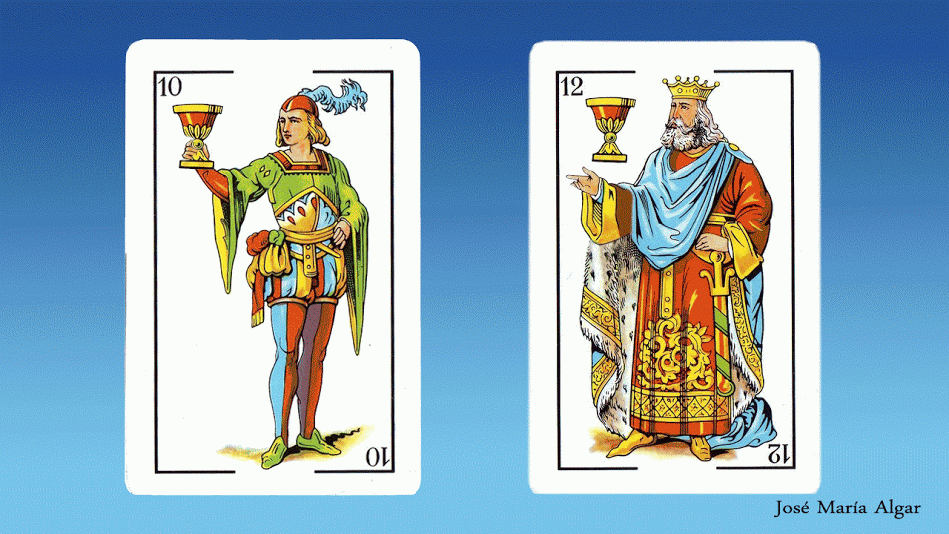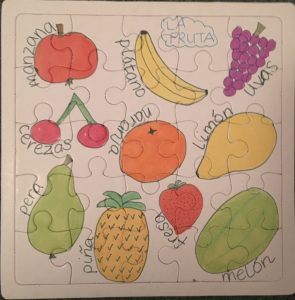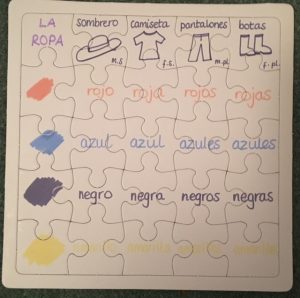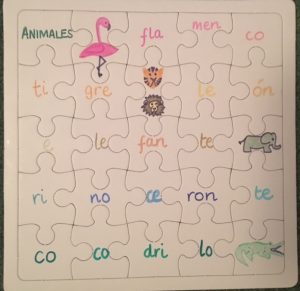Rompecabezas y naipes.
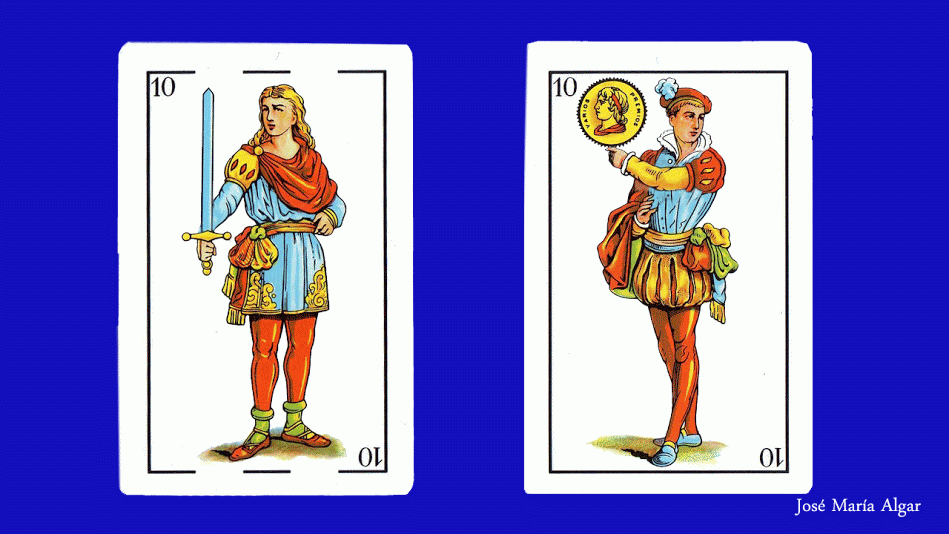 On my trips to Spain I’m always in search of a bargain! I’ve recently not had much luck finding ‘Poundland’ type shops, nor the equivalent of a Swiss brocki but this time I came across a 1 euro shop down one of the Siete Calles in Bilbao. Disappointingly there were no books, and unfortunately I was down to my last few euros. However, I did find some bargains.
On my trips to Spain I’m always in search of a bargain! I’ve recently not had much luck finding ‘Poundland’ type shops, nor the equivalent of a Swiss brocki but this time I came across a 1 euro shop down one of the Siete Calles in Bilbao. Disappointingly there were no books, and unfortunately I was down to my last few euros. However, I did find some bargains.
I was pleased to find these ‘rompecabezas’ in the shop and at 1 euro 20 I bought one of each. I’ll use them in much the same way as my homemade ones; let’s see which is the most popular. Additional activities that you could do once the jigsaws are complete:
- put the vocabulary in alphabetical order
- read and practice pronunciation
- make a list of the words you find most interesting
- make a puzzle for a friend with the words
- classify the words – could be by colour, size, like/dislike, manmade/natural
- find the word for… with a partner
 |
 |
|---|---|
 |
 |
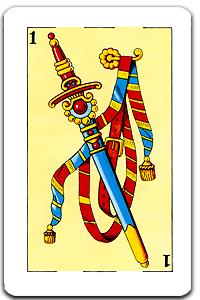
My second purchase was a pack of cards. I’ve got lots of decks of cards already, but this my first ‘baraja española.’ As you can see, they are not the same as the ‘baraja francesa’ with which we may be more familiar. There are four ‘palos’ or suites – oros (coins), copas (cups), espadas (swords) y bastos (sticks) – of 12 cards each. The different ‘palos’ are also distinguished by the number of breaks in the line around the edge of the card: oros -0; colas – 1; espadas – 2; bastos -3. And, in contrast to the 52 card ‘baraja francesa’, there are only 48 cards in the ‘baraja española’ as, whilst there are three ‘figuras’ – rey (king), caballo (horse) and sota (jack) – there is no card marked 10.
If you’re interested in the history of them, the Spanish wikipedia entry is very interesting.
I was pleased to purchase these from a cultural point of view as well as to be used when we’re working on numbers/counting etc
Here’s a post with some ideas on how playing cards can be used in language learning.
And some traditional Spanish card games that are played with the ‘baraja española’ are explained in this post. Some are played with a 40 card deck (which omits the 8 and 9) One such game, and probably one of the simplest too is Siete y media which is explained in Spanish here (to change it to English, click on English in the left hand menu!) but is basically a game in which the aim is to get cards totally 7 ½ points and no more, with number cards being worth face value and ‘figuras’ are worth half. A simple game that could easily be played in class with basic language:
te toca a ti – it’s your go
otra carta por favor – another card please
me planto – I’m sticking here (no more cards)
me paso – I’ve gone bust (my total is over 7 ½)
gano – I win!
¿jugamos otra vez? – shall we play again?
You many not want to add an element of betting for counters or points, but if you do…
apuesto… puntos/fichas – I bet …. points/counters.
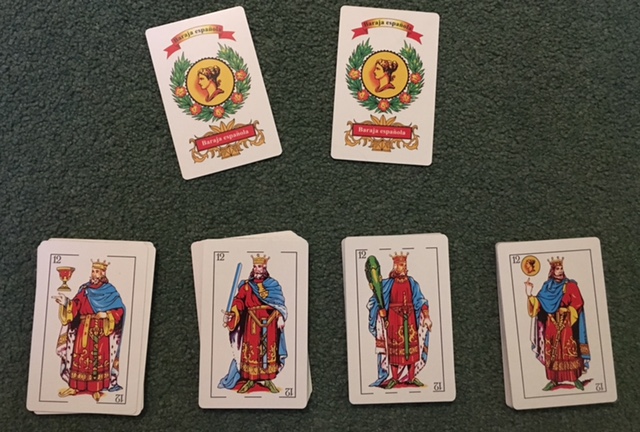 I usually use decks of cards for activities such as :
I usually use decks of cards for activities such as :
- pick a card and say its value in Spanish
- pick two cards and add their values
- playing 21 (very like Siete y media but with higher numbers so harder to play when pupils can only say up to 10!)
- pick a card and saying the number bond to make ten, fifteen or twenty
- pick two cards; what’s the difference?
- pick two cards and multiply the numbers
- higher, lower (in the style of Play your cards right!)
Do you have any favourite card games that you think could be used in the language classroom?
PS Loving these ‘naipes’ GIFs!
